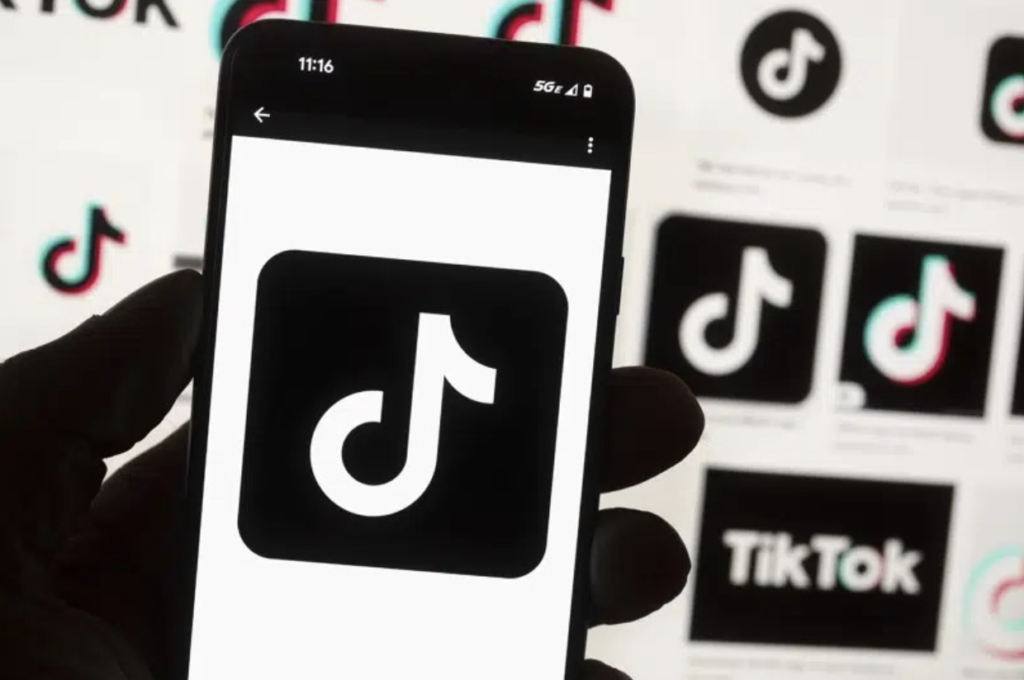Is TikTok a Threat to National Security?

Courtesy of AP News
By Thomas Sukiennik
This is an independently submitted op-ed for our Quill section. Views and statements made in this article do not necessarily reflect the opinions of The Tower.
The People’s Republic of China’s growing power, technology, and influence is without a doubt a national security issue. Namely, TikTok has become a growing concern for lawmakers as well as government officials in the Intelligence Community, and abroad in countries like India, France, and the U.K. Now, why is TikTok problematic?
TikTok is a popular entertainment app with about 150 Million users in the United States which is owned by a parent company in China, called ByteDance. According to Chinese law, all companies in China are required to make their data available to the Chinese Communist Party (also known as the CCP). One might think, this isn’t so bad, China is our ally. This couldn’t be further from the truth.
On almost every street corner one can find cameras with facial recognition software, giving citizens a “social credit score” which permits or denies them freedoms such as driving, eating at certain restaurants, owning pets, traveling, going to school, having internet, and staying at hotels. Further, the Chinese government is perpetrating an ongoing genocide against the Uighur Muslim population. In western China, in Xinjiang, there are internment camps for ethnic minorities to be re-educated, sterilized, and executed if they do not follow the forced labor and the will of the CCP. Forced organ harvesting and execution also takes place at these camps and at prisons throughout China.
According to U.S. Senator Marco Rubio, “From the FBI Director to FCC Commissioners to cybersecurity experts, everyone has made clear the risk of TikTok being used to spy on Americans.”
Now, what does the CUA community think about this? I used CUA polls to ask students some questions on the topic. When asked if they support the Chinese Communist Party, 91% of students said no, with 234 votes, 4% said yes, with 10 votes, and 5% said unsure with 13 votes. 77% of students said they would consider themselves aware of the atrocities committed by the CCP, with 178 votes, while 23% said they would not consider themselves aware of the atrocities committed by the CCP, with 54 votes. 89% of students said they were aware that TikTok is owned and has been used as spyware by the CCP to collect data on US devices, with 214 votes, while 11% of respondents were unaware, with 27 votes. When asked if they would approve of a national ban of TikTok for national security purposes, 52% of voters said yes, with 129 votes, 27% would not approve, with 67 votes, and 21% were unsure, with 51 votes. Interestingly, it seems like even though the vast majority of students were against the CCP, and most were aware of the atrocities they commit, students still are somewhat divided on the issue of a national ban of TikTok. It seems like even though students are against the CCP, they don’t seem to be motivated as much for a national ban of TikTok, although a majority of voters were in favor of one.
For a more professional perspective, I asked some of our Intelligence studies professors for their input. William Nolte, a professor with extensive experience working at the CIA, ODNI, and the NSA, explained his perspective, as well as the perspective of the IC:
“A bit of background here, involving US laws and regulations governing foreign ownership or control of, or influence (FICO) over US firms. These are not prohibited, but there are controls to protect US national security. As one example, when British Aerospace (now BAE) established a US subsidiary, US law required that the subsidiary’s board had to consist of US citizens.”
This idea of government regulation is not new. TikTok is already banned on government agencies’ phones. Professor Nolte further explains,
“TikTok is the overseas component of a Chinese firm. Its American officers have repeatedly testified that their files — especially those files containing the protected personal information of US citizens — are not shared with the Chinese government. In my view, that may be what those officials have been told. They may even believe what they’ve been told. I don’t believe it. And neither do the governments of a growing number of countries outside the US. In part that’s because one could almost say that the principal role of any Chinese government agency — or corporation — is the surveillance or gathering of information on any human, anywhere on the planet. Starting with the Chinese people. But not stopping there. This is not a subject I’ve specialized in but the reports coming from Europe, the Middle East, and any other region where TikTok (or another overseas component) has operated document significant information gathering, selective censorship of content, or influence operations.”
This is an international issue, the U.S. is not the only country that deals with these issues, and many other countries with different laws and styles of government can deal with them differently, like China and Russia, and media control for instance. Professor Nolte elaborates further, explaining the danger of TikTok:
“TikTok is well-designed, entertaining, and attractive. It is also dangerous. Highly dangerous. I would always assume, if I used it, that no matter what its incorporation papers say, officials of TikTok have little or no power to prevent Chinese officials (or party officials) from gaining access to Tik Tok’s files. For the same reason, if I took a vacation in China I would not take my cell phone or my laptop. The American officers of TikTok may say (and believe) that they do not and will not share information with the Chinese government. That said, no employee or official of the ‘home office’ in Beijing or elsewhere is ever going to refuse to supply information to Chinese authorities.”
Professor Nolte elucidates that TikTok can be used to access foreign data, and is required to do so by Chinese law. He makes it clear that TikTok is a danger to U.S. intelligence as well as U.S. citizens.
Further, Professor Nicholas Dujmovic, who also teaches in the politics department here at CUA, offered a statement, saying he also knows that “China’s national security law requires all Chinese companies to cooperate fully with Chinese intelligence.”
Fellow student and Democratic leader Robert Palacios offered his own opinion on the subject. He said, “Any platform that is a threat to the well-being of our fellow citizens, and our national security must be dealt with; even if that means banning TikTok. China has demonstrated its reluctance to honesty and transparency.”
Further, Fellow Student and Republican leader, Gabriella Dankanich offered her ideas. She explained:
“TikTok is a ridiculous national security threat. The owners of ByteDance, TikTok’s parent company, have said themselves that ‘everything is seen in China,’ by the CCP. Why would we allow our greatest adversary to have complete access to information on the phones of American citizens? In addition, TikTok is negatively affecting an entire generation of American citizens. The company is negatively socially engineering my generation, manipulating what Americans see. Meanwhile, TikTok in China is geared towards STEM, ingenuity, and promoting career success out of devotion for the CCP. It is clear that TikTok is used as a weapon against the United States and it is necessary to ban the app from American devices.”
From a national security perspective, CUA students, professors, and government officials agree that TikTok is dangerous. Although a majority of CUA students agree that the U.S. should ban TikTok, there is still a good amount who believe TikTok should still exist in the U.S. Consequently, TikTok remains a popular international social media app with a dangerous background. However, it is still up for debate whether or not it is worth banning such a popular app.






